What Is Manure + How Should You Use It in the Garden?
What is manure, really? Learn how it works in the garden, when it’s safe to use, and how to avoid common manure mistakes that cause problems.
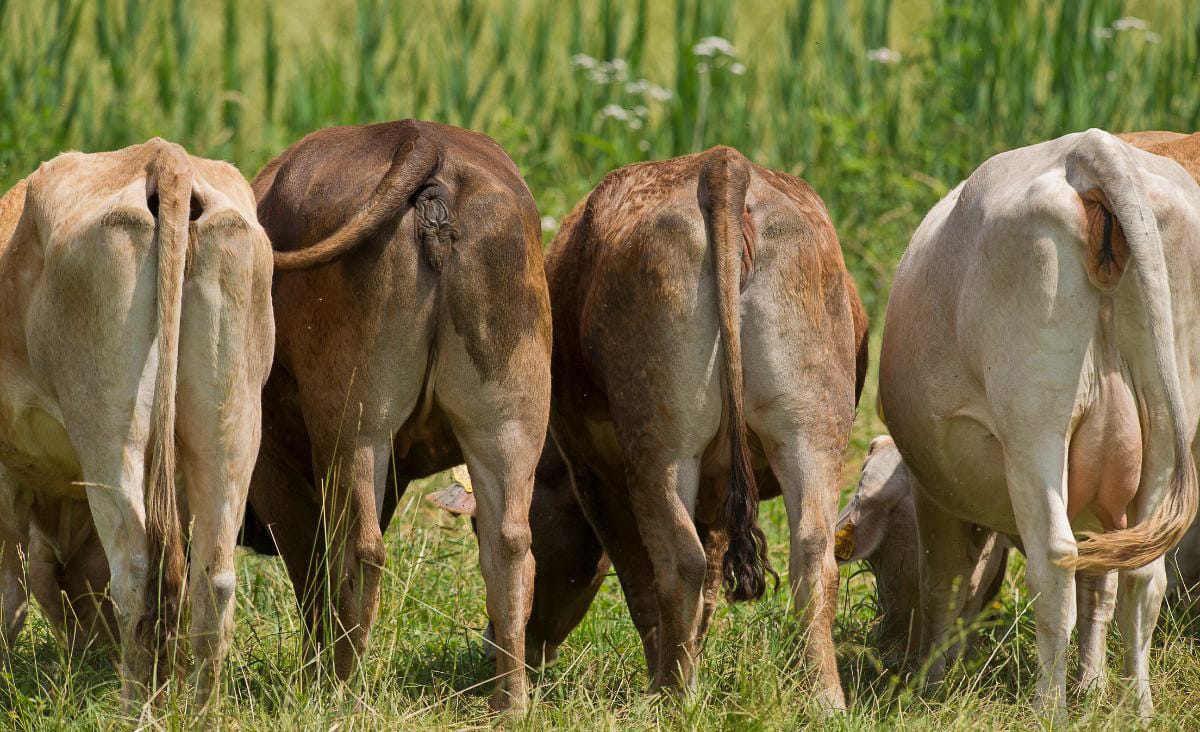
Gardeners love to call manure “black gold,” and honestly, I get why. When it’s handled right, manure can take soil that’s struggling and make it workable again. I’ve watched beds go from hard and lifeless to actually growing decent food again with nothing more than time, patience, and some smart soil building.
But manure is one of those garden tools that’s easy to misunderstand. Not all manure is created equal. Not all of it is safe to use right away. And if you apply it carelessly, you can cause more problems than you solve.
I use manure regularly in my own garden, but I’m picky about how and when I use it. Here’s where manure helps, where it causes problems, and how to use it without regretting it later.
So… What Is Manure, Really?
Manure is animal waste, usually mixed with bedding materials like straw, hay, or wood shavings. On its own, it’s basically just poop. The magic happens after it’s aged or composted.
Once manure has time to break down, it becomes a soil amendment that adds organic matter, nutrients, and beneficial microbes to the garden. That’s what helps soil loosen up, feeds plants steadily, and keeps beds healthier year after year.
Fresh manure and finished manure are not the same thing. Fresh manure is hot, unpredictable, and sometimes unsafe. Aged or composted manure is stable, useful, and far easier to work with.
What Manure Does Well in the Garden
Manure isn’t a quick-fix fertilizer. I don’t use it to push rapid growth or force production. I use it to build soil slowly and intentionally. Here’s what manure does well when it’s properly aged or composted:
- It adds organic matter that loosens compacted soil and improves drainage.
- It keeps soil microbes happy, which makes everything else work better.
- It provides nutrients slowly, which is easier on plants and soil.
- It helps sandy soils hold moisture and heavy soils breathe better.
In heavily mulched or no-till beds, manure behaves a little differently. If you garden with wood chips or deep organic layers, nitrogen can temporarily bind up as materials break down. I go into this more in my post about manure and nitrogen in Back to Eden beds.
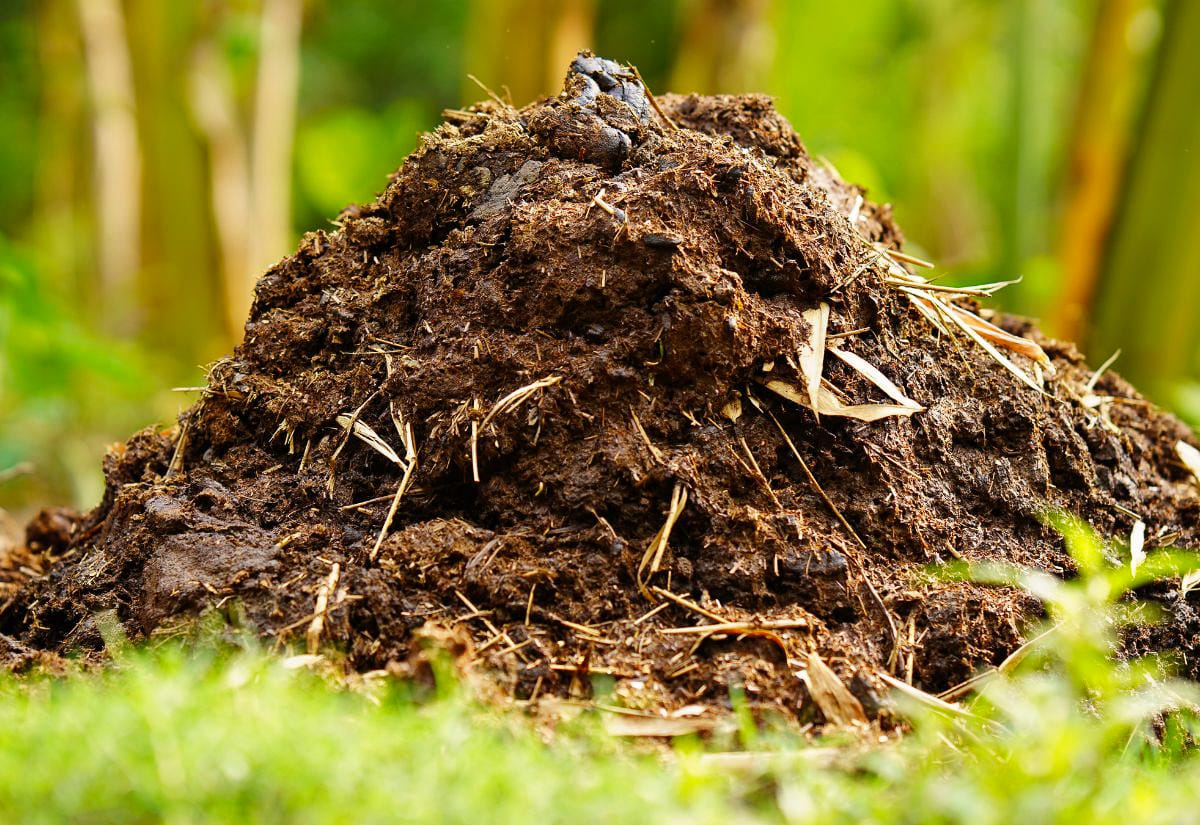
The Trouble With Fresh Manure
I know it’s tempting to use manure straight from the barn. I’ve been there. But fresh manure is where most garden mistakes happen.
It Can Burn Plants: Fresh manure is high in nitrogen, and not the kind plants can use right away. That excess nitrogen can damage roots, stunt growth, or kill young plants outright. Aging gives microbes time to convert nitrogen into a usable form.
It Disrupts Compost Balance: Manure is considered a “green” material. Without enough carbon-rich “browns” like dried leaves or straw, it can turn slimy, smelly, and slow to break down. Balanced composting matters.
It Can Carry Pathogens and Salts: Raw manure may contain bacteria like E. coli or salmonella, along with parasite eggs and salts that stress plants. Composting at high temperatures dramatically reduces those risks.
When I’m composting manure, I use a compost thermometer. I like knowing the pile really got hot enough before it goes anywhere near food crops.
What “Aged Manure” Really Means
This is one of the most common points of confusion I see.
Aged manure has been allowed to sit and break down for several months. It no longer smells sharp or sour, the texture is crumbly rather than sticky, and it doesn’t heat up when disturbed. Composted manure goes a step further. It’s actively managed to reach high temperatures, turned or aerated, and fully stabilized before use.
Both are useful. Composting is safer and more predictable. Aging works if you give it enough time and don’t rush the process.
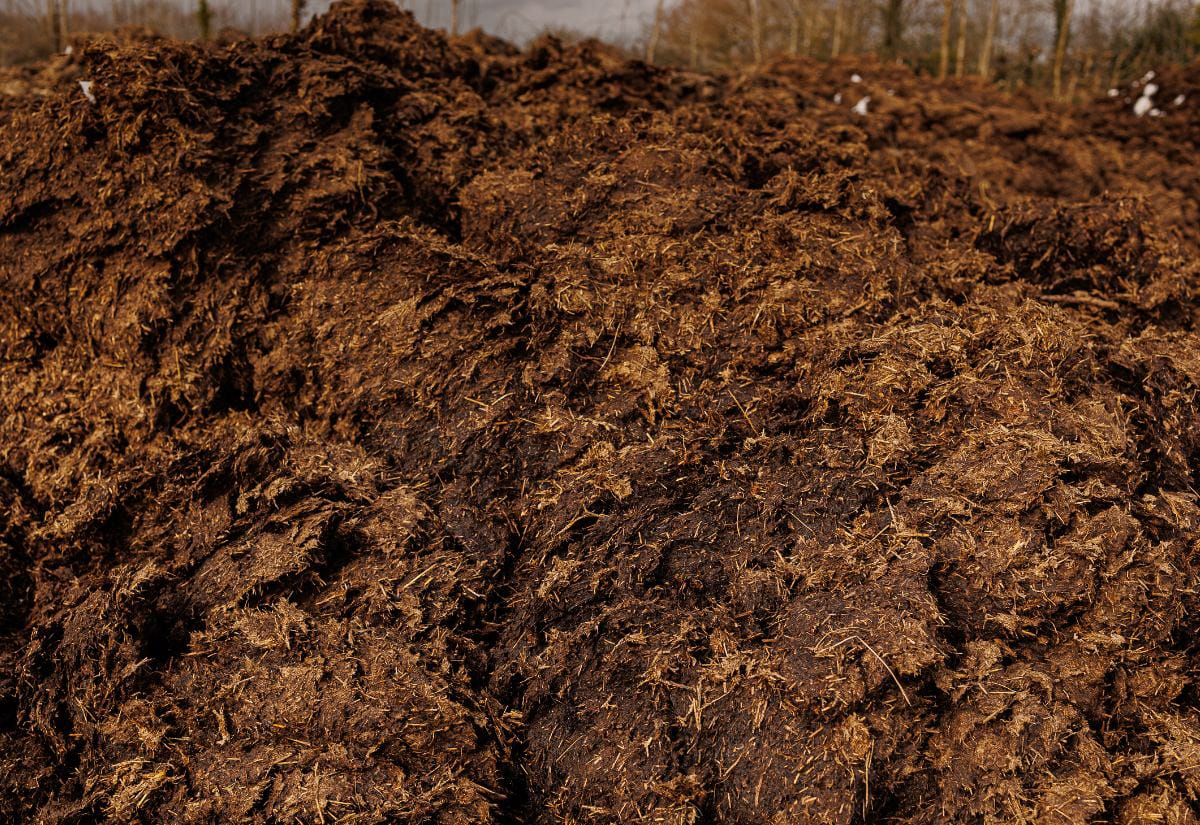
Common Manures and How I Use Them
Not all manure behaves the same way. Here’s how I think about the most common types.
- Poultry Manure: Very high in nitrogen and phosphorus. Powerful, but easy to overdo. I only use this fully composted and sparingly.
- Cow Manure: One of the gentlest options. Lower nutrient density, but excellent for improving soil structure. This is a staple in many of my beds.
- Horse Manure: Similar to cow manure, but often full of weed seeds unless composted hot. I won’t use it unless I know how it was handled.
- Rabbit Manure: Dry, pellet-like, and mild. Small amounts can be used directly, though I usually compost it anyway out of habit.
- Goat Manure: Another pellet-style manure that breaks down quickly. Great when composted and easy to manage.
- Pig Manure: This one deserves caution. Pig manure is often wet and high in pathogens. I never apply it raw and only use it after thorough hot composting.
How Much Manure Is Really Enough
More is not better. This is where people get into trouble.
For general soil conditioning, about 40 pounds per 100 square feet is plenty. Poor or compacted soil can handle more, but I’d rather build slowly than overwhelm the system.
If you’re top-dressing beds, a one- to two-inch layer of composted manure worked into the surface is usually enough. In mulched beds, I apply manure underneath the mulch so nutrients don’t wash away.
If you’re not sure how your soil is responding, a basic soil test kit can help you avoid nutrient overload. I don’t test all the time, but I do when something feels off or I’m changing things up.
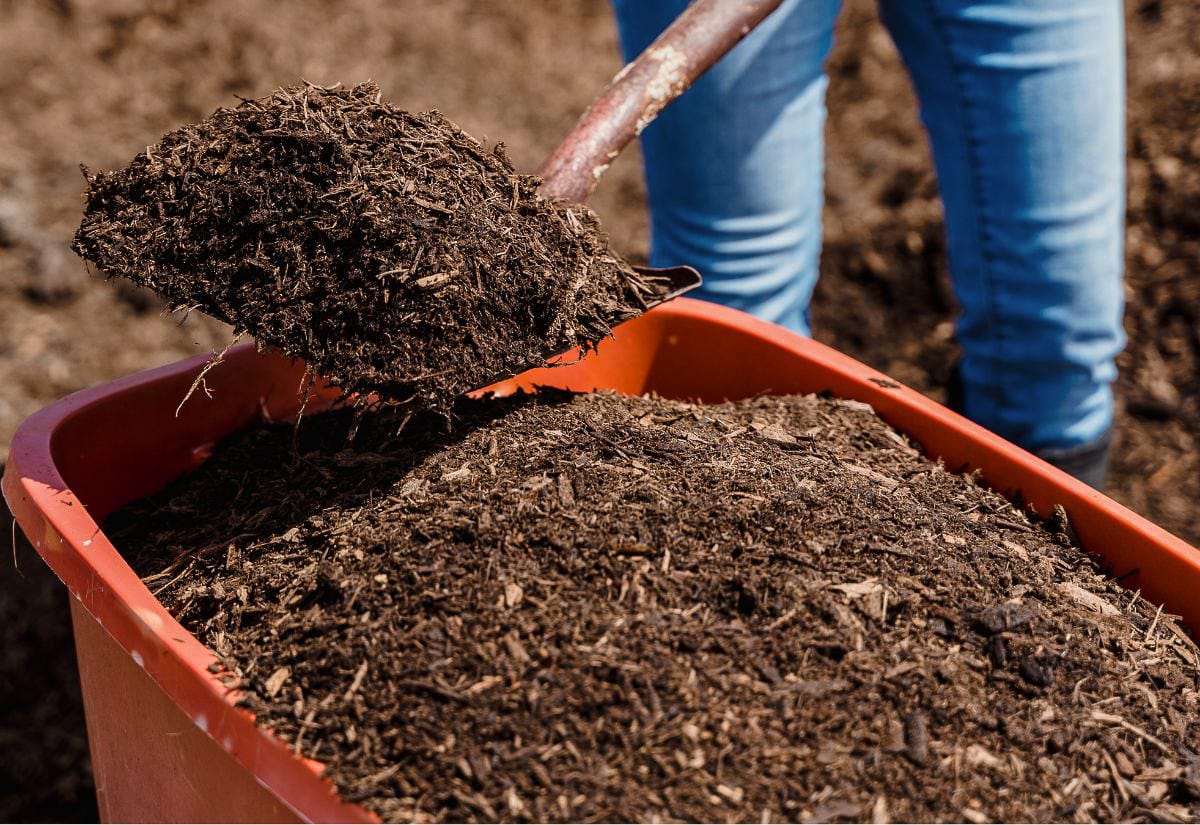
A Warning About Persistent Herbicides
This is the part I wish more people talked about.
Some pasture herbicides, like aminopyralid and clopyralid, survive digestion and composting. They can pass through animals unchanged and end up in manure. When that manure is added to garden beds, sensitive plants like tomatoes and beans can fail completely.
I’ve seen this happen. Once those chemicals are in your soil, they can linger for years. Before using manure from outside sources, ask what the animals were fed. If there’s any doubt, do a small bioassay test with potted plants before spreading it across your garden.
This is why I don’t assume manure is automatically safe just because it’s “natural.”
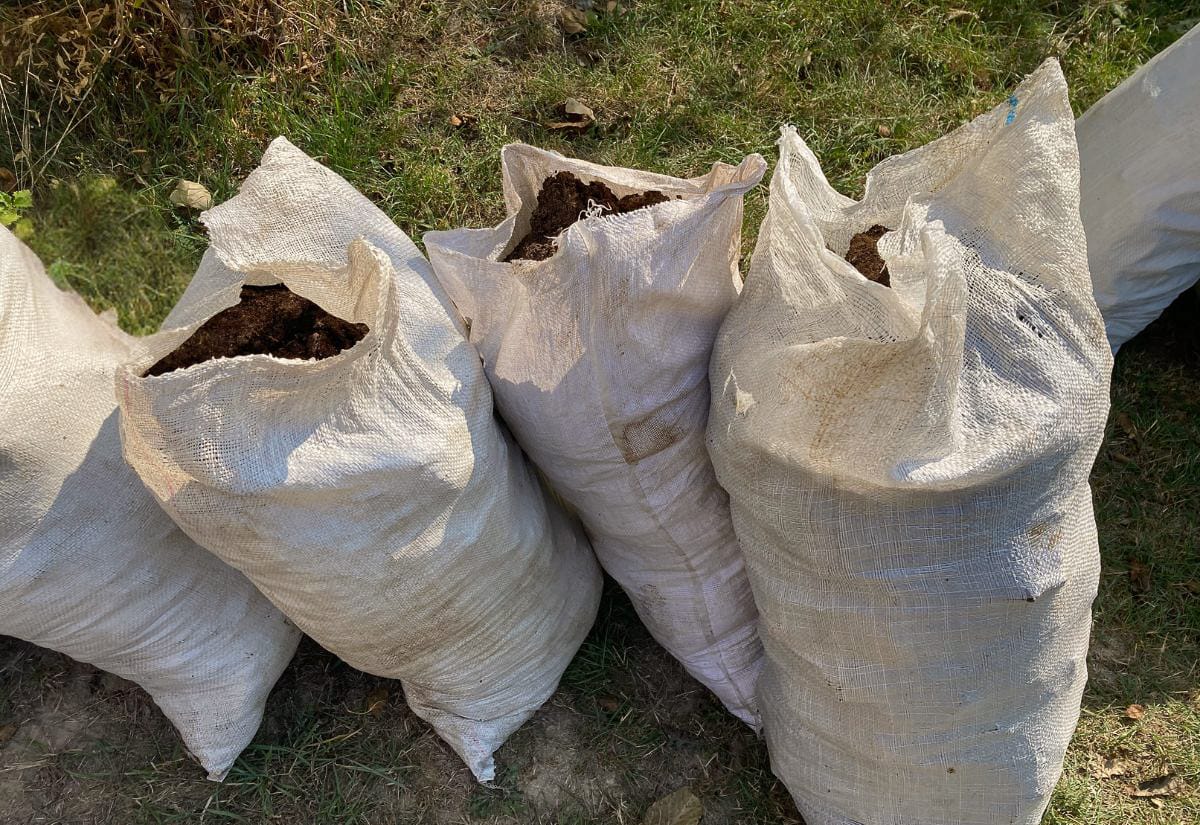
How Manure Fits Into the Bigger Picture
Manure works best as part of a system, not a standalone fix.
I often pair manure with permaculture herbs that support soil health naturally, especially plants that attract beneficial insects or help regulate nutrient cycling.
I’m also careful when combining manure with other amendments. For example, wood ash can be useful in the garden, but it’s easy to throw off soil balance if you stack too many inputs at once. If you’re working on a tight budget, there are also frugal soil-boosting options using pantry staples that can supplement compost and manure without adding expense.
And if you’ve been gardening for years and things still aren’t improving, manure alone may not be enough. In that case, learning how to repair damaged or overworked soil can make a much bigger difference than adding more inputs.
If you’re gardening Back to Eden–style, it’s also worth revisiting some common assumptions. A few popular beliefs about manure and mulch simply don’t hold up, which I break down when talking about Back to Eden gardening myths that won’t die.
A Few Manure Questions That Come Up a Lot
If you’re still sorting through the details, you’re not alone. These are some of the most common questions I hear.
Pin this so you’re not second-guessing manure use next time you’re in the garden.
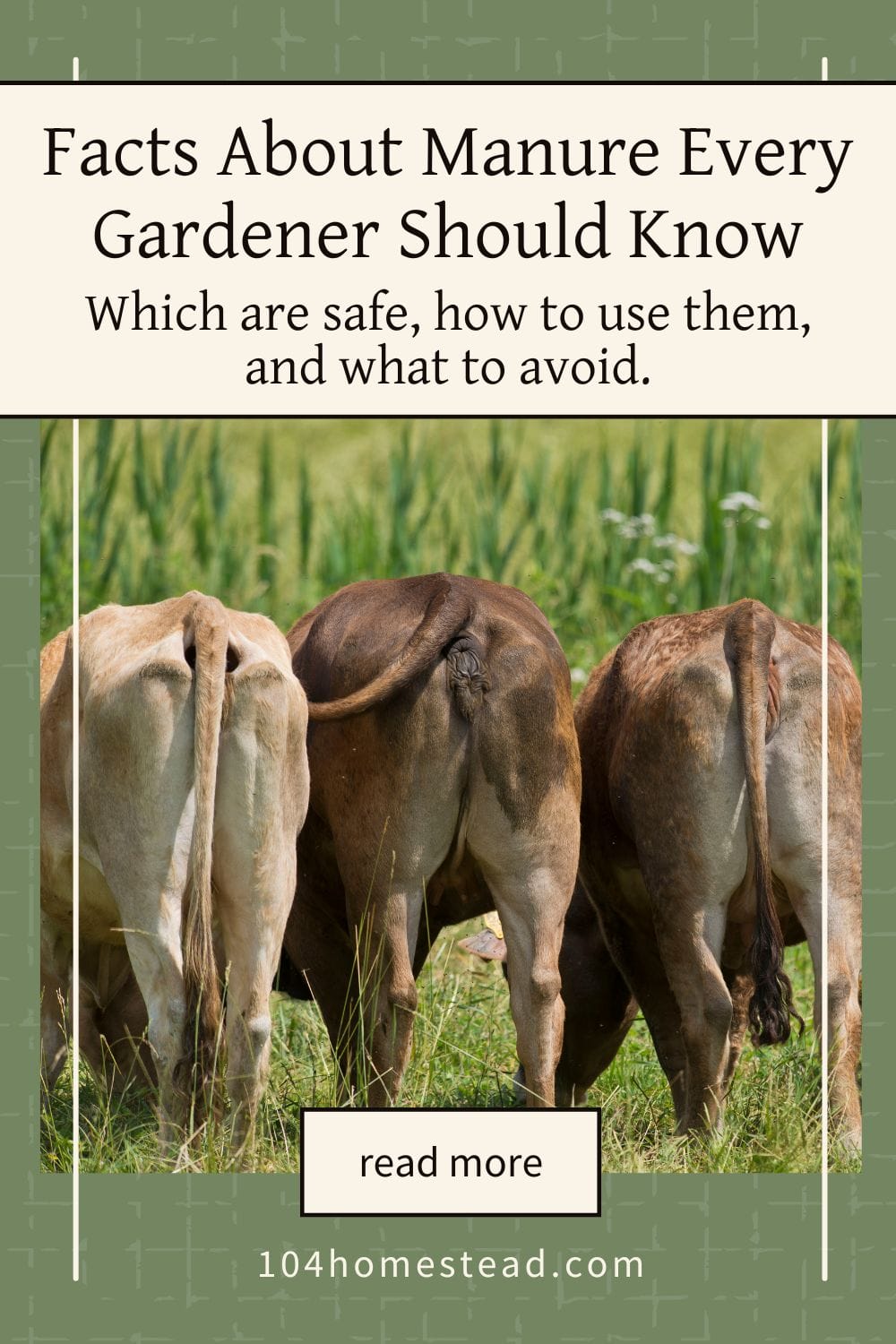
Used carefully, manure can be incredibly useful. Used carelessly, it causes problems. I’d much rather go slow and build soil over time than rush and create more work later. Start with what you have access to. Compost it if you can. Test when you’re unsure. And pay attention to how your soil responds over time.
If you’ve used manure in your garden, I’d love to hear what worked for you. Drop a comment and tell me what type you use and how you apply it.
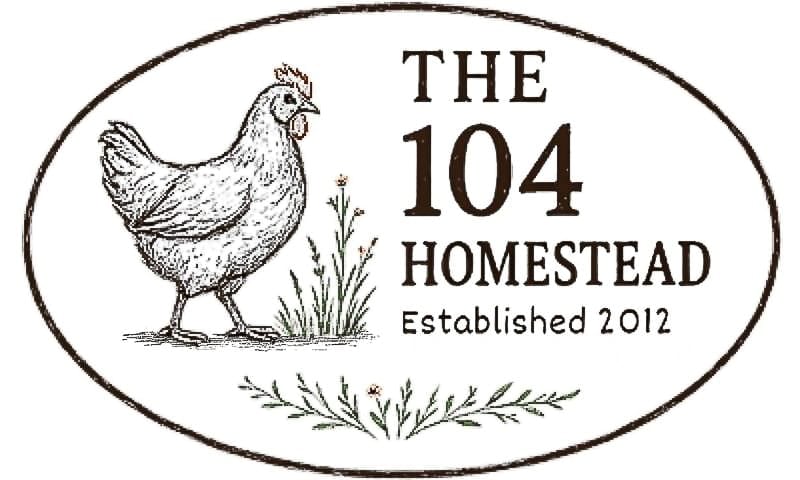
Humanure(human waste manure), hog/pig manure & munure from carniverous animals(dogs/cats/other carniverous & omniverous animals)can be used for veggie gardens but must be “fully cured”by completely decomposing before use. If not it can be used on lawns & landscape plants or say in nut & fruit tree orchards, grape vines & berry vine plants. Also for added benefit letting (especially carniverous animal manure)age a year or two will 100% assure all parasites/harmful bacterias & viruses are gone.Hog/pig manure that is from hogs that have been fed a vegetarian diet can be looked upon as more safer than hog manure that is from an omniverous hog fed diet. fed garbage & animal scraps. Also if the hogs have no intestinal worms the manure would be safer & may not need “aging” a year or two.Now today 70% plus of pork has no worms.
What about pig manure, is that any good?
I haven’t used pig manure, so I’m not sure.
Hi, interesting post. I use a mixture of compost and dried steer manure a lot. But I have found that worm composting and using the worm castings mixed with home made compost works at least equally well. Have you ever used castings? It is organic nitrogen, it will not burn your plants. “Worm” Tea can be made from it as well, again very nitrogen rich. If you haven’t tried worm composting, you may enjoy it, they really are amazing little creatures. Great Post!
Excellent, great information, thanks.
Hello Jessica,missed you, thank you for all the advice.
Jessica,
I am blessed to have a property where I can raise goats, chickens, and rabbits. But I also live down the road from the only organic raw cow dairy in Arizona. She feeds the cows organically raised alfalfa and puts EMs in the water. No hormones are used and if a cow needs antibiotics she is culled from the herd. She gives aways the manure.
I love your blog. You are an inspriration for me.
Luck you! I had a great source for very aged cow and horse manure. It was fabulous stuff. Unfortunately, I think the supply is depleted. I’ll have goat manure next year, but not aged. I have more chicken manure than I know what to do with. My neighbors visit with empty buckets and leave with them full.
Google “persistent herbicides”. You need to know that your hay, grain, straw, grasses, etc were grown on fields that were not sprayed with certain broadleaf herbicides that persist in the soil. They persist in animal manures and are not destroyed by composting. They may also be present in commercial compost. Know what you are using! I learned the hard way!
I honestly had no idea that manures were different! That explains why the horse manure seems to work better then the chicken manure though! Thanks for the info!
Thanks for linking up with Green Thumb Thursday. I hope to see you again this week!
Lisa
Llama and sheep are my favorites. I add using a tea twice a year and then directly add the pellets in the winter, works great with our climate. I’ve used cow and horse when we raised both on our farm a few years back, contains to many seeds from both pasture grass and grain. Those are actually better applied in the form of a tea if you don’t want the weeds. The chickens though they just free range so they fertilize year round without any problems, coops are mobile which is fantastic, waste just gets worked back into the ground. Messy with poo is stinky business and not something I enjoy. LOL
I love compost/manure tea. My dad made me a wishing well style tea maker with a spigot for using a low pressure hose or for filling a watering pail.
Hey there, I have my share of chicken manure mixed with wood shavings and straw. But I also have sheep and llama manure mixed with hay and straw. Last of all I have piles of just plain llama poop. Can you say a few things about these and/or direct me to a good source of how to use this in my gardens. Thanks.
Hi Julie! Great question. I actually posted your question on our Facebook page and these are the responses I got:
“Hi Julie! The farm down the way has llamas. When I took some of her poo she said I should let it compost over the summer. I use deep bedding and clean my coops out in the late spring. I use lots of leaves, straw and such in my bedding and toss some goodies into the bedding for them to scratch and turn it about. But, it’s still steaming when I remove it so it’s not done cooking. I think if it’s still producing lots of heat…let it cook. If it’s not then add it. Now, when I clean the coops out at the end of summer I take that straight to the garden and pile it right on top of a bunch of leaves if I have them and any hay that’s bad. I KNOW that extra heat up top keeps my worms nice and happy so they can eat all those leaves and such. If it’s crumbly like dirt I toss a handful into a wee hole that I’m planting, top dress (sprinkle it about the plant once there’s true leaves). I also take a bag of it and suspend it in a barrel of water to make compost tea. You can use any fabric and just fold the compost up. I let it sit and sit. I mix it so the water doesn’t stagnate and it’s smelly so you only wanna go a week at the longest unless it’s far enough back from the house.”
“Goat manure is actually better than cow manure. Cow manure must be composted first because it has so high a nitrogen content, but goat manure can be placed right in your garden beds with little fear of burning your plants. I do not know about the llama’s, but since its manure is dropped in the form of pellets like goat, deer, and rabbits, I would think this is also true.”
I hope this helps 🙂